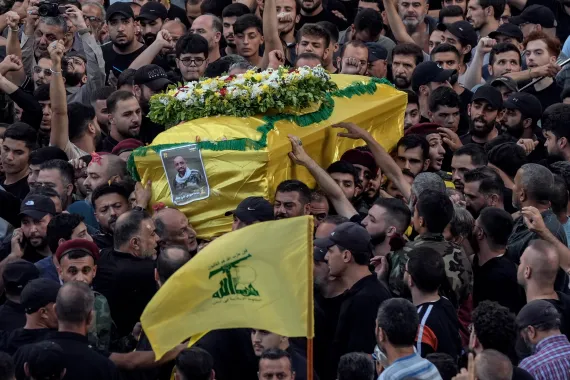A series of devastating explosions involving communication devices across Lebanon has left at least 20 people dead and over 450 injured. The explosions, occurring on September 18, 2024, follow a previous wave of attacks involving pagers that resulted in 12 deaths and thousands of injuries, reported Al Jazeera.
Lebanon’s Health Minister Firass Abiad has warned that the number of casualties could rise due to the severity of the injuries caused by these blasts. The devices, reportedly detonated by coordinated attacks, are believed to have been booby-trapped by Israeli forces, raising concerns about violations of the laws of war.
In response to these attacks, Israeli Defense Minister Yoav Gallant has announced a “new phase” in the ongoing conflict, indicating a shift of focus from Gaza to northern fronts, redirecting military resources and efforts.
The international community is reacting strongly to the escalation. Germany has significantly reduced its arms exports to Israel amid legal challenges questioning the humanitarian impact of such sales. Meanwhile, the UN General Assembly has overwhelmingly passed a resolution demanding an end to Israel’s occupation of Palestinian territories, with 124 countries voting in favor, 43 abstaining, and only 14 countries, including the United States and Israel, voting against.
Amid the turmoil, Hezbollah has continued its attacks on northern Israel, targeting Israeli military positions and infrastructure in retaliation for the recent Israeli assaults on southern Lebanon. As the situation remains volatile, international calls for a ceasefire and diplomatic resolution grow louder, emphasizing the urgent need for de-escalation and renewed peace efforts.
The crisis in Lebanon underscores the dire humanitarian impact of the ongoing conflict and the complex nature of international responses to the escalating violence.




